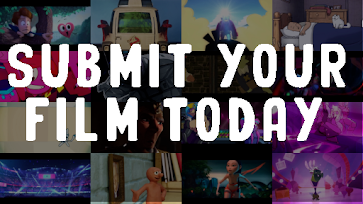Netflix, Amazon and the Future Of TV Animation
As I write this, we're just a day away from the debut on Netflix of the latest DreamWorks Dragons TV series, Race To The Edge. This makes up just part of DWA's massive deal to provide hours of content for the streaming giant, that has also given us Turbo Fast and Puss In Boots. Rivals Amazon too have invested heavily in animation (although their stuff to date has skewed much younger). As streaming video has now forever changed the television landscape how big a part will major players like Netflix, Amazon and Hulu play in the future of animated TV?
The DWA/Netflix deal is a pretty major development. Seeing a big company like DreamWorks skip traditional broadcasters entirely is a pretty surprising thing to see. Sure, you'd expect them to sell the streaming rights to shows at a later date but to skip normal TV routes was unexpected, to say the least. It points to an ever-changing market- you'd assume that conventional TV would bring a bigger audience, but maybe that's not the case any more?
The reason streaming companies are investing so heavily in original programming is pretty obvious- anyone who wants to watch it will have to subscribe to your service. It's also an area that's very appealing to programme makers themselves. It allows unprecedented freedom, as unlike almost every US TV network they're not beholden to those pesky advertisers. Like with HBO and the BBC, the quality of the programmes themselves is all that matters. But what if more animation was made that way?
The great thing about the streaming sites is they don't need to think like a TV Network. Why then is all the animation they've produced barely different from what you'd see on a standard kids channel? Most of the stuff so far has been aimed at very young kids (Dragons is perhaps the widest appealing so far). Adult animation has pretty much so far been represented by Netflix's BoJack Horseman and a couple of adult animated sitcoms on Hulu. Entertaining they may be, but none of these would look out of place on Fox. Streaming is shaking up the way we consume animation- so where's the innovation in the shows being made?
We all know there's an audience for animation beyond pre-schoolers- there's a whole potential audience of adults (and teens) that companies like Netflix are in a perfect position to serve. There's more to adult animation than a million Family Guy clones. The Legend Of Kora struggled on TV- imagine if it's creative team were given free reign and allowed to make a series for Netflix? Or if Bruce Timm got another crack at a comic-book show, no longer watched over by pesky network censors? Or how about a new animated series from Lord and Miller, years after the failure of Clone High? The potential is endless.
The streaming giants have been bringing back a lot of canceled shows, so how about some animation too? It might be a bit much to hope Futurama is rescued again, but I'm not going to give up hope!
Netflix moved directly into acquiring anime with Knights of Sidonia- we'd certainly like to see more of that, too. And how about widening the net when it comes to bought in content? There's definitely some interesting animation coming out of Europe, Korea and elsewhere that may well find an audience in English given the chance.
There's no doubt that the giants of streaming video have forever changed television, and the way we watch it. So why are they so firmly stuck in the past when it comes to animation?
The DWA/Netflix deal is a pretty major development. Seeing a big company like DreamWorks skip traditional broadcasters entirely is a pretty surprising thing to see. Sure, you'd expect them to sell the streaming rights to shows at a later date but to skip normal TV routes was unexpected, to say the least. It points to an ever-changing market- you'd assume that conventional TV would bring a bigger audience, but maybe that's not the case any more?
The reason streaming companies are investing so heavily in original programming is pretty obvious- anyone who wants to watch it will have to subscribe to your service. It's also an area that's very appealing to programme makers themselves. It allows unprecedented freedom, as unlike almost every US TV network they're not beholden to those pesky advertisers. Like with HBO and the BBC, the quality of the programmes themselves is all that matters. But what if more animation was made that way?
The great thing about the streaming sites is they don't need to think like a TV Network. Why then is all the animation they've produced barely different from what you'd see on a standard kids channel? Most of the stuff so far has been aimed at very young kids (Dragons is perhaps the widest appealing so far). Adult animation has pretty much so far been represented by Netflix's BoJack Horseman and a couple of adult animated sitcoms on Hulu. Entertaining they may be, but none of these would look out of place on Fox. Streaming is shaking up the way we consume animation- so where's the innovation in the shows being made?
We all know there's an audience for animation beyond pre-schoolers- there's a whole potential audience of adults (and teens) that companies like Netflix are in a perfect position to serve. There's more to adult animation than a million Family Guy clones. The Legend Of Kora struggled on TV- imagine if it's creative team were given free reign and allowed to make a series for Netflix? Or if Bruce Timm got another crack at a comic-book show, no longer watched over by pesky network censors? Or how about a new animated series from Lord and Miller, years after the failure of Clone High? The potential is endless.
The streaming giants have been bringing back a lot of canceled shows, so how about some animation too? It might be a bit much to hope Futurama is rescued again, but I'm not going to give up hope!
Netflix moved directly into acquiring anime with Knights of Sidonia- we'd certainly like to see more of that, too. And how about widening the net when it comes to bought in content? There's definitely some interesting animation coming out of Europe, Korea and elsewhere that may well find an audience in English given the chance.
There's no doubt that the giants of streaming video have forever changed television, and the way we watch it. So why are they so firmly stuck in the past when it comes to animation?























